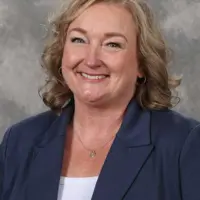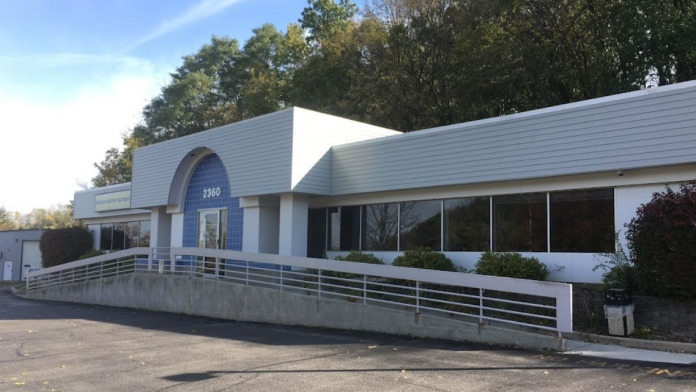About South Central Human Relations Center – Kasson
Spero (formally SCHRC) offers compassionate, evidence-based and whole-person substance use recovery and mental health support that fosters healing and empowerment. Their Certified Community Behavioral Health Clinic (CCBHC) status means you’ll be provided care regardless of your ability to pay. Spero operates outpatient clinics across three locations in Minnesota, including this one in Kasson.
They promote community wellbeing via tailored and integrated care that also includes psychiatric care, crisis support and in-house pharmacy.
Integrated Care For Whole Person Recovery
Spero offers substance use and mental health assessment and personalized treatment planning to help the care team deliver more targeted and effective treatment. Their outpatient therapy incorporates several clinically proven methods like cognitive and dialectical behavioral techniques and motivational interviewing.
These techniques help you build resilience in recovery and equip you with tools to manage and recognize triggers. Spero offers trauma-informed care using the Seeking Safety model to help patients process past trauma that may fuel substance dependence.
They also provide psychiatric care, including medication management & monitoring as well as medical support as part of the integrated care. Their full spectrum of care encompasses nutritional and occupational therapy alongside spiritual support.
You’ll enjoy the support of peer specialists who’ll guide you toward self-determination, personal responsibility and empowerment. Their staff may offer referrals to community services to address needs like housing and employment as you move forward. The facility even offers ongoing aftercare and support services, including follow-up sessions, support groups and resources for continued personal growth and recovery.
In Home and Community-Focused Treatment
Spero’s Assertive Community Treatment or ACT provides personalized support for adults struggling with substance use disorders and mental health challenges. This program will also suit you if you struggle with living independently, working competitively or have had multiple hospitalizations in the past. ACT eliminates barriers to care and helps patients achieve independent living skills needed to integrate into the community seamlessly.
Services are delivered at home or within a community setting and involve personalized treatment planning, therapy and psychiatric care and intervention for co-occurring disorders. They also offer vocational assistance, psychoeducation and peer support alongside 24/7 crisis support. The ACT team provides flexible ongoing support that adapts to client’s changing needs as they move forward.
Rehab Score
Location
Accepted Insurance






Other Forms of Payment
Medicaid is a state based program that helps lower-income individuals and families pay for healthcare. Medicaid covers addiction treatment so those enrolled can use their coverage to pay for rehab. When a program accepts Medicaid the client often pays very little or nothing out of their own pocket.
Private insurance refers to any kind of healthcare coverage that isn't from the state or federal government. This includes individual and family plans offered by an employer or purchased from the Insurance Marketplace. Every plan will have different requirements and out of pocket costs so be sure to get the full details before you start treatment.
Self-pay involves paying for treatment out of your own pocket. You can use savings or credit, get a personal loan, or receive help from family and friends to fund your treatment. If you don't have insurance or your insurance plan doesn't cover a specific program, self-pay can help ensure you still get the care you need.
Financial aid can take many forms. Centers may have grants or scholarships available to clients who meet eligibility requirements. Programs that receive SAMHSA grants may have financial aid available for those who need treatment as well. Grants and scholarships can help you pai for treatment without having to repay.
Sliding scale payments are based on a client's income and family size. The goal is to make treatment affordable to everyone. By taking these factors into account, addiction recovery care providers help ensure that your treatment does not become a financial burden to you or your family, eliminating one barrier to care.
Medicare is a federal program that provides health insurance for those 65 and older. It also serves people under 65 with chronic and disabling health challenges. To use Medicare for addiction treatment you need to find a program that accepts Medicare and is in network with your plan. Out of pocket costs and preauthorization requirements vary, so always check with your provider.
Military members, veterans, and eligible dependents have access to specific insurance programs that help them get the care they need. TRICARE and VA insurance can help you access low cost or no cost addiction and mental health treatment. Programs that accept military insurance often have targeted treatment focused on the unique challenges military members, veterans, and their families face.
Addiction Treatments
Levels of Care
Outpatient Programs (OP) are for those seeking mental rehab or drug rehab, but who also stay at home every night. The main difference between outpatient treatment (OP) and intensive outpatient treatment (IOP) lies in the amount of hours the patient spends at the facility. Most of the time an outpatient program is designed for someone who has completed an inpatient stay and is looking to continue their growth in recovery. Outpatient is not meant to be the starting point, it is commonly referred to as aftercare.
Treatments
Mental health rehabs focus on helping individuals recover from mental illnesses like bipolar disorder, clinical depression, anxiety disorders, schizophrenia, and more. Mental health professionals at these facilities are trained to understand and treat mental health issues, both in individual and group settings.
Programs
Adult rehab programs include therapies tailored to each client's specific needs, goals, and recovery progress. They are tailored to the specific challenges adult clients may face, including family and work pressures and commitments. From inpatient and residential treatment to various levels of outpatient services, there are many options available. Some facilities also help adults work through co-occurring conditions, like anxiety, that can accompany addiction.
Young adulthood can be an exciting, yet difficult, time of transition. Individuals in their late teens to mid-20s face unique stressors related to school, jobs, families, and social circles, which can lead to a rise in substance use. Rehab centers with dedicated young adult programs will include activities and amenities that cater to this age group, with an emphasis on specialized counseling, peer socialization, and ongoing aftercare.
Clinical Services
Cognitive Behavioral Therapy (CBT) is a therapy modality that focuses on the relationship between one's thoughts, feelings, and behaviors. It is used to establish and allow for healthy responses to thoughts and feelings (instead of unhealthy responses, like using drugs or alcohol). CBT has been proven effective for recovering addicts of all kinds, and is used to strengthen a patient's own self-awareness and ability to self-regulate. CBT allows individuals to monitor their own emotional state, become more adept at communicating with others, and manage stress without needing to engage in substance abuse.
Whether a marriage or other committed relationship, an intimate partnership is one of the most important aspects of a person's life. Drug and alcohol addiction affects both members of a couple in deep and meaningful ways, as does rehab and recovery. Couples therapy and other couples-focused treatment programs are significant parts of exploring triggers of addiction, as well as learning how to build healthy patterns to support ongoing sobriety.
Research clearly demonstrates that recovery is far more successful and sustainable when loved ones like family members participate in rehab and substance abuse treatment. Genetic factors may be at play when it comes to drug and alcohol addiction, as well as mental health issues. Family dynamics often play a critical role in addiction triggers, and if properly educated, family members can be a strong source of support when it comes to rehabilitation.
Group therapy is any therapeutic work that happens in a group (not one-on-one). There are a number of different group therapy modalities, including support groups, experiential therapy, psycho-education, and more. Group therapy involves treatment as well as processing interaction between group members.
In individual therapy, a patient meets one-on-one with a trained psychologist or counselor. Therapy is a pivotal part of effective substance abuse treatment, as it often covers root causes of addiction, including challenges faced by the patient in their social, family, and work/school life.
Staff

Michele Merxbauer, LGSW
Executive Director

Christie Grunwald
COO

Chuck Myers
CFO
Contact Information
17 5th street Se
Kasson, MN 55944







